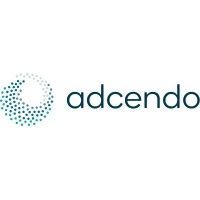预约演示
更新于:2025-10-30

ADCendo ApS
更新于:2025-10-30
概览
标签
肿瘤
其他疾病
皮肤和肌肉骨骼疾病
ADC
疾病领域得分
一眼洞穿机构专注的疾病领域
暂无数据
技术平台
公司药物应用最多的技术
暂无数据
靶点
公司最常开发的靶点
暂无数据
| 排名前五的药物类型 | 数量 |
|---|---|
| ADC | 11 |
关联
11
项与 ADCendo ApS 相关的药物作用机制 MRC2拮抗剂 [+1] |
在研机构 |
原研机构 |
非在研适应症- |
最高研发阶段- |
首次获批国家/地区- |
首次获批日期- |
作用机制 TOP1抑制剂 [+1] |
在研机构 |
非在研适应症- |
最高研发阶段- |
首次获批国家/地区- |
首次获批日期- |
靶点 |
作用机制 MRC2拮抗剂 |
在研机构 |
原研机构 |
在研适应症 |
非在研适应症- |
最高研发阶段- |
首次获批国家/地区- |
首次获批日期- |
2
项与 ADCendo ApS 相关的临床试验NCT06797999
A First-in-human, Phase 1/2, Multicenter, Open-label, Dose Escalation and Expansion Study to Evaluate the Safety, Pharmacokinetics, and Antitumor Activity of ADCE-D01, a Humanized Anti-human uPARAP Antibody Linked to a Topoisomerase I Inhibitor, in Patients With Metastatic and/or Unresectable Soft Tissue Sarcoma
The goal of this clinical trial is to learn about the safety, tolerability and efficacy of ADCE-D01.
开始日期2025-06-05 |
申办/合作机构 |
NCT06597721
First-in-Human, Phase 1 Study of ADCE-T02, a Tissue Factor Targeted Antibody-Drug Conjugate, in Patients With Advanced Solid Tumors
Adcendo ApS is conducting a phase 1 study of an investigational drug called ADCE-T02 (previously known as AMT-754), a tissue factor targeted antibody-drug conjugate which may be used in the future as a possible treatment for advanced solid tumors.
The main purpose of the study is to determine the Maximum Tolerated Dose (MTD), the recommended dose and the safety and tolerability of ADCE-T02 when given as a single therapy over a range of different dose levels.
The main purpose of the study is to determine the Maximum Tolerated Dose (MTD), the recommended dose and the safety and tolerability of ADCE-T02 when given as a single therapy over a range of different dose levels.
开始日期2024-11-25 |
申办/合作机构 |
100 项与 ADCendo ApS 相关的临床结果
登录后查看更多信息
0 项与 ADCendo ApS 相关的专利(医药)
登录后查看更多信息
164
项与 ADCendo ApS 相关的新闻(医药)2025-10-23
·网易号
作者:甘坛焕、姜铸轩摘要■ 投资逻辑深耕ADC赛道,持续开发下一代新型ADC疗法。ADC是指通过连接子偶联靶向特异性抗原的抗体或抗体片段和有效载荷的靶向药物。根据医药魔方,全球约57%ADC研发管线来自中国。公司于2025年4月在香港联合交易所主板上市,主营业务聚焦ADC技术赛道,致力于为癌症、自免等重大疾病患者开发临床价值明确的创新疗法。目前公司有13款临床开发ADC药物,8款处于临床阶段,5款处于临床前研究,共开展了12个临床试验,核心产品为DB-1303(HER2 ADC)和DB-1311(B7-H3 ADC)。公司BD总交易超60亿美元,彰显ADC技术创新竞争力。ADC市场已成长为制药行业中增长最快的领域之一。快速的创新步伐刺激了ADC技术领域的大规模交易,公司已与全球多家行业领先企业达成多项对外许可及合作协议,包括与BioNTech(DB-1303、DB-1311、DB-1305)、百济神州(DB-1312)、Adcendo(基于公司专有连接子-有效载荷的ADC资产)、GSK(DB-1324)及Avenzo(DB-1418),2023/2024/2025H1确认BD收入合计分别为17.81/19.37/12.27亿元,总交易价值超60亿美元。率先开拓IO 2.0+ADC联合疗法蓝海市场。公司全面推进IO 2.0+ADC联合疗法,与BioNTech共同开展DB-1303、DB-1311、DB-1305分别与PD-L1/VEGF双抗BNT327四项联合疗法的研究,拓展多种实体瘤前线应用。DB-1303:预计2025年向FDA提交2L+ HER2表达晚期EC BLA,以及在中国递交HER2阳性乳腺癌的新药上市申请。上述IO+ADC联合疗法后续进展以及临床数据读出值得关注。风险提示临床试验进展不及预期;新药研发结果不及预期;市场推广及销售不及预期;国际化业务进展不及预期。+目录目录一、深耕ADC赛道,构建全球研发管线二、中国ADC技术创新驱动BD交易升温,联合疗法有望迈向一线三、DB-1303靶点成熟具备安全性差异化优势,有望快速上市四、DB-1311对比同类DS7300(B7-H3 ADC)展现更好疗效和安全性五、DB-1305依托协同机制,聚焦实体瘤联合治疗六、风险提示正文一、深耕ADC赛道,构建全球研发管线以 ADC 技术为核心,推进全球多中心临床,攻坚下一代创新疗法。公司自2020年成立以来,始终聚焦ADC技术赛道,致力于为、自身免疫性疾病等重大疾病患者开发临床价值明确的创新疗法。公司已成功构建了多个具有全球知识产权的新一代ADC技术平台。基于对疾病生物学机制的深入研究和探索,公司拥有丰富的临床ADC研发管线,并在超过20个国家开展多个全球多中心临床试验,入组超过2600名患者。同时,映恩生物与全球制药公司和顶尖创新药企达成多项海外授权合作。作为全球ADC创新引擎,映恩生物持续开发下一代新型ADC,包括双抗ADC,全新机制载荷ADC和自免ADC。公司于2025年4月15日在香港联合交易所有限公司主板上市,以每股94.6港元的发售价,合计发行1733.23万股股份(其中包含753.58万股香港发售股份与979.65万股国际发售股份),总代价为16.4亿港元,折合人民币约15.2亿元;此外,针对2025年5月6日已行使的超额配股权,公司又于2025年5月9日额外发行259.98万股股份,该笔额外发行的总代价为2.5亿港元,折合人民币约2.3亿元。四大ADC技术平台获MNC高度认可。依托经验丰富的研发团队所积累的深度技术积淀、对ADC分子设计的深刻理解,以及高效的项目执行能力,公司成功构建了DITAC、DIBAC、DIMAC和DUPAC四大领先ADC技术平台,为突破当前ADC治疗领域的疗效瓶颈、安全性局限等行业挑战提供了核心技术支撑。公司技术平台作为持续创新与价值创造的基础,其价值与多样性已在管线资产中验证;同时,平台的技术价值亦获得跨国药企合作伙伴的高度认可,成为公司对外合作的重要技术背书。核心产品未上市,ADC授权款项成营收主力。公司核心产品目前尚未进入商业化上市阶段,2022年至2025H1营业收入分别为160万元、17.87亿元、19.41亿元及12.29亿元,核心收入来源为DB-1303、DB-1311等ADC候选药物对外授权所产生的首付款及里程碑款项。截至目前,公司已与全球多家行业领先企业达成多项对外许可及合作协议,合作范围涵盖核心管线与技术授权,具体包括与BioNTech(合作资产为DB-1303、DB-1311、DB-1305)、百济神州(合作资产为DB-1312)、Adcendo(合作资产为基于公司专有连接子-有效载荷的ADC资产)、GSK(合作资产为DB-1324)及Avenzo(合作资产为DB-1418)的合作,上述合作总交易价值超60亿美元。2025年上半年,公司持续推进全球化业务落地:一方面积极参与全球顶尖医学学术会议,在2025年ASCO年会、AACR年会及SGO年会上,公开披露多项ADC候选药物的临床研究数据及临床前研究设计,强化行业技术交流与管线价值传递;另一方面,依托“映恩飞轮”模式的协同优势,完成两项重要全球合作的落地——DB-1418与Avenzo的合作、DB-1303与三生制药的合作,并于上半年收到合作首付款5.34亿元。研发支出随ADC临床推进递增。2022年至2025H1,公司研发投入持续聚焦核心管线推进,各期间研发支出分别为3.40亿元、5.59亿元、8.37亿元及3.49亿元;其中,2025H1研发费用与2024年同期(2024H1)基本持平,整体研发支出规模随核心ADC候选药物临床研究阶段的持续推进呈稳步增长态势。截至2025年6月30日,公司账面现金余额为29.94亿元,为后续研发投入与业务拓展提供坚实资金基础。两款核心ADC步入关键阶段,六款临床药位居全球前沿梯队。目前,公司拥有两款自主研发的核心ADC候选药物,分别为DB-1303/BNT323与DB-1311/BNT324:其中,DB-1303/BNT323为HER2靶向抗体药物偶联物(ADC),靶向癌症领域(涵盖子宫内膜癌EC、乳腺癌BC);DB-1311/BNT324为B7-H3靶向ADC,靶向癌症领域(涵盖小细胞肺癌SCLC、去势抵抗性前列腺癌CRPC、食管鳞癌ESCC、头颈部鳞状细胞癌HNSCC)。除核心产品外,公司还构建了丰富的自主研发ADC管线,具体包括:(i)六款临床阶段ADC药物(即DB-1310、DB-1305/BNT325、DB-1312/BG-C9074、DB-1419、DB-2304、DB-1418/AVZO-1418),此类药物在广泛癌症适应症中具备临床应用潜力,就总体或核心适应症的开发进展而言,各药物均处于全球临床领先梯队;(ii)多款临床前ADC药物,其中包含一款双特异性抗体药物偶联物(BsADC,代号DB-1421),该BsADC预计于2026年推进至临床阶段。二、中国ADC技术创新驱动BD交易升温,联合疗法有望迈向一线ADC靶向药物以抗体实现载荷精准递送。ADC是指通过连接子(linker)偶联靶向特异性抗原的抗体或抗体片段和有效载荷(如小分子细胞毒药物)的靶向药物。在理想状态下,通过抗体的特异性结合,将有效载荷精准递送至特定位置以发挥其作用。具体来看,ADC由抗体(Antibody)、连接子(Linker)和载荷(Payload)三部分组成,包括抗体、靶点、连接子、偶联方式和载荷这五大核心要素。ADC的每个组成部分发挥不同的、多方面功能:ADC的抗体或抗体片段首先通过识别并结合靶细胞膜的抗原,将ADC药物引导至靶细胞表面,通过靶点介导的内吞作用进入细胞,借助细胞内部特殊的环境(如溶酶体或低pH值环境),经过化学作用或酶裂解方式切断linker释放高活性的有效载荷(可裂解linker),或在抗体降解后释放有效载荷相关成分(不可裂解linker),最终通过破坏DNA或阻止细胞分裂等方式实现对肿瘤细胞的杀伤。ADC的有效载荷除了直接对靶细胞进行杀伤,亦或透过细胞膜进入肿瘤微环境,被周围或邻近细胞吸收而实现杀伤作用(即旁观者效应)。除此之外,ADC在细胞内化后释放有效载荷诱导细胞死亡的过程中,损伤相关分子模式(DAMPs)在肿瘤微环境中释放,并被未成熟的树突状细胞(DCs)通过Toll样受体 (TLR)识别。这一相互作用和有效载荷的直接刺激促进了DCs的成熟。成熟的DCs迁移至淋巴结中激活naive T细胞,激活的T细胞渗入肿瘤部位识别并攻击癌细胞。此外,ADC能够通过抗体依赖性细胞毒性(ADCC)、抗体依赖性细胞吞噬作用(ADCP)和/或补体依赖性细胞毒性(CDC)来激活免疫系统,达到抑制肿瘤的效果。ADC研发呈爆发态势。截至目前,全球范围内已有超300种ADC产品处于获批上市或临床试验阶段,另有超1000种临床前候选ADC产品处于研发阶段。其中,18款ADC产品已获全球监管机构批准上市,4款处于上市申请阶段(NDA/BLA阶段),近300款处于临床试验阶段。全球57% ADC研发管线来自中国。伴随中国创新药整体研发能力的提升,中国在全球活跃研发状态ADC管线数量排名中处于前列。从原研机构所属地区/国家维度统计,中国为全球拥有活跃研发状态ADC管线数量最多的国家,共181款,贡献全球活跃研发状态ADC管线总量的57%。从研发阶段分布来看,上述181款中国活跃ADC管线中,84%处于早期研发阶段(I期至II期临床试验阶段);在商业化进展方面,已有3款国产ADC药物获中国监管机构批准上市,分别为:荣昌生物研发的靶向HER2 ADC药物维迪西妥单抗、科伦博泰研发的靶向TROP2 ADC药物芦康沙妥珠单抗,以及恒瑞医药研发的靶向HER2 ADC药物瑞康曲妥珠单抗。全球ADC交易持续升温。过去十年,ADC市场已发展为全球制药行业中增长最快的领域之一。ADC技术的快速创新推动该领域交易活动持续活跃,全球范围内ADC交易数量呈现稳定上升趋势:2015年至2023年期间,交易数量从9笔快速增长至62笔,2023年亦为截至目前ADC交易数量最高的年份。2024年,全球ADC交易数量仍维持高位水平。从交易金额来看,根据已披露数据统计,2015年至2025年年初至今(YTD),全球ADC领域累计交易金额已超过1400亿美元。从成本优势转向技术优势,中国ADC license-out交易规模攀升。从中国ADC药物对外授权(license-out)交易视角分析,ADC已成为中国制药企业推进全球化布局、参与全球市场竞争的关键突破口之一。2019年至今,中国ADC对外授权(license-out)交易累计达66笔,其中2023年、2024年交易数量分别达20笔,保持稳定活跃态势。截至2025年5月底,中国企业对外授权且总交易金额超10亿美元的ADC重磅交易已达24笔。2025年1月,启德医药与Biohaven达成的偶联平台技术授权及多靶点创新ADC药物开发合作,总交易金额达130亿美元,创下中国ADC领域对外授权交易金额的历史新高。此外,科伦博泰、石药集团、宜联生物、映恩生物等中国企业亦曾达成多笔ADC药物或技术相关的重磅对外授权交易。上述交易布局与金额规模表明,中国ADC企业的核心竞争力已从“成本优势”逐步转向“技术创新”。ADC与化疗/免疫/靶向疗法联用,拓展治疗边界。ADC药物与其他疗法的联合治疗,在充分发挥ADC药物治疗优势的同时,可有效克服单一疗法的局限性,拓展传统治疗方案的应用边界,为更多疾病患者提供新的治疗选择。目前已有多项临床前研究及临床试验,正针对ADC药物与化疗、免疫治疗、靶向治疗的联合治疗策略开展探索。其中,化疗药物与偶联微管抑制剂的ADC联合使用时,可在作用机制层面发挥协同效应,增强对肿瘤细胞的杀伤活性。然而,此类联合方案存在毒性叠加风险,且可能触发多重耐药机制激活的潜在可能性,需通过进一步临床试验开展验证与治疗方案优化。ADC与免疫疗法联用成新方向。近年来,ADC药物与免疫治疗的联合治疗已成为ADC领域新的研发热点。从作用机制来看,二者存在明确协同效应:一方面,免疫检查点抑制剂可解除T细胞的免疫抑制状态,增强ADC诱导的免疫原性细胞死亡(ICD)效应;另一方面,ADC药物可通过杀伤肿瘤细胞,改善肿瘤微环境、减轻免疫抑制状态,进而增强免疫检查点抑制剂的治疗疗效。以临床应用为例,靶向nectin-4的ADC药物维恩妥尤单抗(enfortumabvedotin)联合PD-1抑制剂帕博利珠单抗(pembrolizumab),在一线尿路上皮癌临床试验中展现出显著生存获益:相较于标准化疗,联合方案显著延长患者总生存期,中位总生存期分别为31.5个月vs16.1个月。该联合方案也成为首个获美国FDA批准的PD-1抑制剂联合ADC治疗方案。ADC与靶向疗法联用,借协同机制靶向肿瘤多通路。ADC药物与靶向疗法的联用亦是当前肿瘤治疗的核心策略之一,通过协同靶向肿瘤细胞的多条信号通路,涉及通过靶向肿瘤血管改善肿瘤内药物输送、调节肿瘤细胞表面抗原表达、克服肿瘤异质性和耐药性、合成致死等多种机制,未来存在大量的布局机会。三、DB-1303靶点成熟具备安全性差异化优势,有望快速上市DB-1303兼具ADCC与旁观者效应的HER2 ADC,覆盖全HER2表达水平晚期实体瘤患者。DB-1303是一款公司自主研发的靶向HER2的ADC,采用人源化抗HER2免疫球蛋白G1单抗设计,具有与曲妥珠单抗相同的氨基酸序列。Linker是通过基于马来酰亚胺四肽的可裂解连接子,在血浆中稳定的可裂解连接子,经静脉给药后通过血液流动,系统中的游离有效载荷较低,具有潜在的良好安全性。Payload是专有的拓扑异构酶I抑制剂有效载荷(P1003)共价连接,DAR值为8。DB-1303能够通过ADCC及旁观者杀伤效应表现出HER2特异性抗肿瘤活性,从而为HER2表达晚期实体瘤患者(包括HER2高表达和低表达患者)提供新治疗选择方案。DB-1303全球/中国注册性临床同步开展,2025年美国提交BLA申请,中国新药上市申请。截止目前,DB-1303正在进行两项注册性临床试验(一项全球试验及一项中国试验)及一项全球潜在注册研究。并且DB-1303已获美国FDA快速通道资格(FTD)、突破性疗法认定(BTD),及中国NMPA突破性疗法认定(用于治疗在接受免疫检查点抑制剂治疗时或治疗后出现疾病进展的晚期EC患者)。此外,公司的合作伙伴BioNTech预计2025年向FDA提交2L+ HER2表达晚期EC生物制品许可申请(BLA),以及在中国递交HER2阳性乳腺癌的新药上市申请,即将迈向商业化阶段。HER2已是一种成熟靶点,多表达于子宫内膜癌、乳腺癌和卵巢癌。HER2是HER家族中一种细胞表面受体蛋白,在调节细胞生长、分裂及存活中发挥著关键作用。在通过配体结合或过度表达激活后,HER2与其他HER家族成员二聚化,导致下游信号级联(如PI3K/AKT及MAPK/ERK通路)的激活。该等通路促进细胞增殖、抑制细胞凋亡及增强细胞迁移及侵袭。HER2在正常组织中以低水平表达,但其在肿瘤细胞(子宫内膜癌、乳腺癌和卵巢癌)中通过过度表达异常激活,促进肿瘤细胞的生长及存活,从而推动各种癌症类型的发展。HER2已成为一种成熟的癌症药物靶点,不同方式的HER2靶向治疗取得了成功,其中最为成功的策略之一是HER2 ADC。从Kadcyla到国产维迪西妥单抗,全球HER2 ADC市场迎高增长。全球第一款靶向HER2的ADC Kadcyla于2013年获批。第一三共与阿斯利康联合开发了定点偶联技术,共同研发成功新一代HER2 ADC药物Enhertu(德曲妥珠单抗),该药物于2019年获批;此后,首个国产HER2 ADC维迪西妥单抗由荣昌生物研发,于2021年获批上市。根据Frost&Sullivan,全球HER2 ADC市场预计将由2023年的48亿美元增至2028年的185亿美元,年复合增长率为30.8%。子宫内膜癌(EC)是全球最常见的妇科癌症之一。作为发病人数增长最快的癌症之一,EC的新增病例由2018年的34.4万例增至2023年的40.2万例,且预计于2032年将达到49.4万例;其中中国患者由2018年的6.58万例增至2023年的7.07万例,预计于2032年将达到7.83万例。虽然EC传统上在绝经后女性中更常见,但在年轻女性中的发病人数正在上升,而这显示出医疗需求日益增长。晚期、转移性或复发性EC患者的五年生存率估计仅为18%。目前EC的治疗方案存在显著的局限性。EC当前的治疗主要包括化疗、靶向治疗(如TKI)、激素治疗、免疫检查点抑制剂(如PD-(L)1抑制剂)及ADC,而ADC是一种新治疗方式。对于不适合进行全子宫切除术的患者,传统的药物治疗有很大的副作用。此外,有相当比例的患者在一线治疗后发展为晚期及复发性疾病,并对二线或三线治疗的反应有限。在中国,复发性和转移性EC的系统性治疗以卡铂和紫杉醇作为I级推荐的治疗方案。II级治疗方案包括(i)卡铂、紫杉醇加曲妥珠单抗或贝伐珠单抗联合治疗;及(ii)卡铂和多西他赛联合治疗。在二线治疗中,I级推荐的治疗方案包括帕博利珠单抗加乐伐替尼。在美国,复发性EC一线治疗方案包括(i)卡铂和紫杉醇联合或不联合帕博利珠单抗或dostarlimab治疗;(ii)卡铂和紫杉醇联合或不联合曲妥珠单抗治疗HER2+患者。二线治疗方案包括(i)顺铂和阿霉素联合或不联合紫杉醇治疗;(ii)顺铂和吉西他滨联合治疗;及(iii)顺铂、卡铂或阿霉素及其他药物的单药疗法。DB-1303对于HER2低表达和HER2+ EC均显活性,覆盖潜力超70%EC患者。截至目前,全球唯一获批用于治疗EC患者的HER2 ADC适用于治疗多种HER2+实体瘤,因此仅涵盖HER2+ (IHC 3+)EC,而此类患者估计约占EC患者群体的17-30%。全球尚无获批用于治疗HER2不同表达水平EC的HER2 ADC,而DB-1303是唯一一款处于III期临床开发或更后阶段的适用于HER2不同表达水平EC患者的HER2 ADC候选药物。DB-1303差异化优势体现于在 HER2低表达(IHC 1+及IHC 2+)以及HER2+ EC患者中均观察到其抗肿瘤活性,其应用将有潜力扩展至超过70%的EC患者群体。DB-1303展现出同类最优的疗效,以及可控的安全性。截至2023年5月8日,在I/IIa期临床试验中,有17名患者可评估其缓解情况。疗效方面:DB-1303在既往接受过大量治疗的HER2表达EC患者(IHC 1/2/3+或ISH阳性)(包括既往接受过免疫治疗或抗HER2抗体治疗的患者)中表现出的ORR及DCR分别为58.8%及94.1%。相较于恒瑞医药瑞康曲妥珠单抗(ORR 50%、DCR 92.3%)与第一三共/阿斯利康Enhertu(ORR 57.5%、DCR 80%)的数据,DB-1303的表现更优。在安全性方面,DB-1303 展现出可控的安全性特征:在剂量递增过程中未观察到剂量限制性毒性(DLT),未发生导致死亡或停药的治疗期间出现的不良事件(TEAE),且未出现间质性肺病,≥3 级TEAE发生率为 31.2%。与之对比,Enhertu在治疗EC患者期间,报告了2例死亡病例,另有13例患者因不良事件需采取剂量降低或药物中断措施。综合来看,在患者基线特征相似的情况下,DB-1303不仅展现出更优疗效,还具有更可控的安全性。乳腺癌是全球第二大癌症类型。乳腺癌(BC)是一种乳腺异常细胞不受控制地生长并形成肿瘤的疾病。它是女性中最常见的癌症,且大多发生在女性群体中。2023年全球发病人数约为241万例,中国约为37万例。并且保持着持续增长的态势,到2032年全球发病人数预计320万例,中国预计44万例。HER2低表达或无表达患者存在未满足的临床需求。BC当前的治疗格局主要包括化疗、单克隆抗体、免疫检查点抑制剂及小分子抑制剂(如CDK4/6抑制剂)以及ADC,而ADC是一种新治疗方式。Kadcyla及Enhertu是仅有的两款于美国及中国均获批用于BC的HER2 ADC。过往HER2 ADC被设计为靶向HER2+ BC并认为仅对HER2+ BC有效。然而,HER2+ BC患者占BC患者群体总数的比例不到三分之一,因而HER2低表达及HER2无表达人群得不到有效治疗。芳香酶抑制剂及选择性雌激素受体降解剂等内分泌治疗(ET)是中国和美国晚期HER2低表达BC的标准一线和二线治疗方案的基石。然而,使用ET后的复发率约为40-50%,可用于复发患者的有效治疗方案有限。目前,仅有一款HER2 ADC(Enhertu)获批用于治疗HER2低表达BC,且仅适用于既往在复发转移阶段接受过化疗或在辅助化疗期间或结束后六个月内疾病复发的患者,凸显了庞大的HER2低表达或无表达患者群体中未获满足的需求。DB-1303差异化布局三大BC适应症。公司与BioNTech于2023年建立了全球战略合作伙伴关系,合作核心围绕DB-1303展开,旨在加速该药物的研发进程,并最大化其全球市场价值。DB-1303布局了乳腺癌3大适应症分别为(1)治疗晚期或转移性HR+/HER2低表达乳腺癌(这些患者的疾病在至少两线既往内分泌治疗后进展,或在一线内分泌治疗联合细胞周期蛋白依赖性激酶4/6(CDK4/6)抑制剂治疗后6个月内进展,且无既往化疗史),III期全球注册性临床试验,首位患者于2024年1月给药。(2)既往接受过曲妥珠单抗和紫杉烷治疗的HER2+不可切除及╱或转移性BC (DB-1303对比T-DM1),中国3期注册性试验,公司预计于2025年底向中国药监局提交BLA。(3)为释放ADC前线疗法潜力,公司于2025年5月,启动了DB-1303联合BNT327( PD-L1xVEGF bsAb)的1/2期临床试验(NCT06827236),并完成首例患者给药,针对适应症为HR+/HR-、HER2低表达、超低表达或无表达的晚期转移性乳腺癌或TNBC。针对末线HER2表达BC患者,DB-1303疗效响应积极且安全性出众。DB-1303在其I/II期全球临床试验中显示出积极的疗效。患者基线为既往的治疗线数中位数为7。在HER2低表达BC患者中,ORR及DCR分别为38.5%及84.6%;在HER2+ BC患者中,ORR及DCR分别为50%及96.2%,其中脑转移患者ORR=55.6%、DCR=100%,针对脑转移患者亦取得较好响应数据。并且DB-1303展现出良好的耐受性,且在剂量递增期间未观察到DLT,亦无与死亡相关的TEAE,12.9%的患者报告了3级或以上TRAE。与同类竞品相比,DB-1303的间质性肺病(ILD)发生率为2.4%,且3级及以上治疗TRAE发生率在同类中处于最低水平,充分展现了其安全性差异化优势。四、DB-1311对比同类DS7300(B7-H3 ADC)展现更好疗效和安全性DB-1311凭Fc沉默设计+高DAR,临床前活性与安全性优于DS-7300。DB-1311是一款公司自主研发的、全球临床进度领先的B7-H3 ADC。DB-1311主要包括三个成分:Fc端沉默的单抗(人源化抗B7-H3 IgG1单抗)、可裂解连接子及拓扑异构酶抑制剂(P1021)。尽管全球目前尚无获批的B7-H3靶向疗法,但B7-H3 ADC已显示出令人鼓舞的临床疗效。根据2023年美国癌症研究协会年会上公布的临床前结果,相较于DS-7300(B7-H3 ADC,第一三共/阿斯利康),DB-1311的DAR值更高(为6),在B7-H3高表达模型中,无论是体外还是体内,均显示出更强的抗肿瘤活性。DB-1311通过靶向主要存在于B7-H3过度表达肿瘤细胞中的4IgB7-H3亚型,表现出高选择性,与通常在正常细胞上表达的2IgB7-H3亚型相比,其亲和力高出1,000倍以上。同时,DB-1311的Fc端沉默单抗旨在减少不必要的免疫反应。在临床前研究中,与DS-7300相比,DB-1311显示出显著更高的HNSTD(人体非严重毒性剂量)以及与B7-H3表达肺癌细胞有更好的结合能力。B7-H3驱动肿瘤生长转移的关键分子,高表达实体瘤广泛,成癌症治疗新靶点。B7-H3是B7家族的重要成员,在促进肿瘤生长及转移方面发挥著关键作用。B7-H3能有效抑制T细胞和NK细胞的功能,并抑制细胞因子的产生,从而可能促进癌细胞的免疫逃逸。B7-H3高表达广泛见于各种实体瘤,包括去势抵抗性前列腺癌、肝细胞癌、非小细胞癌和小细胞癌等。B7-H3因在肿瘤免疫逃逸中的作用已成为一个活跃的研究领域及潜在治疗靶点,并成为多种癌症类型的潜在支柱治疗靶点。全球小细胞肺癌发病率呈现增长的态势。小细胞肺癌(SCLC)占全球所有肺癌病例的10-15%。全球SCLC发病人数由2018年的33.29万例增至2023年的38.28万例,预计到2032年将达到48.41万例。在中国,SCLC 的发病人数由2018 年的14.27万例增至2023年的16.35万例,预计到2032年将达到20.21万例。SCLC 疗法有限(化疗/PD-L1为主),65%病例表达B7-H3。SCLC是一种恶性肺癌,特征为病情进展快和高复发率。SCLC分为两期:局限期和广泛期,前者仅局限于胸腔一侧,后者则扩散到胸腔以外至身体其他部位。SCLC特点是病情进展快、复发率高,且五年生存率低于7%;相比之下,(NSCLC)的五年生存率为 28%。然而,小细胞肺癌(SCLC)的可用疗法仍然有限(主要为化疗及 PD-L1 抑制剂),且截至目前,全球获批用于治疗该适应症的靶向疗法仍为数不多。B7-H3在约65%的SCLC病例中表达。全球B7-H3过度表达SCLC发病人数由2018 年的19.97万例增至2023年的22.97万例,预计到2032年将达到29.05万例。DB-1311布局SCLC二线(或以上)适应症,同时具备通过联合治疗策略向一线治疗拓展的潜力。从治疗线数对全球SCLC患者拆分:其中,需一线治疗的SCLC患者人数由2018年的24.36万例增长至2023年的28.49万例,预计2032年将进一步增至36.82万例;需二线及以上治疗的SCLC患者人数则由2018年的12.71万例增长至2023年的14.94万例,预计2032年将达19.48万例,庞大且增长的患者基数为药物的适应症布局提供了明确的临床价值支撑。在联合治疗探索层面,DB-1311已启动与PD-L1/VEGF双特异性抗体(bsAb)BNT327的联合方案研发,用于晚期肺癌治疗,标志着该联合治疗策略正式进入临床验证阶段。2025年5月,一项评估DB-1311联合BNT327的1/2期临床试验(NCT06892548)已完成首例晚期肺癌患者给药。2025年7月,一项评估DB-1311联合BNT327(PD-L1xVEGFbsAb)或联合DB-1305/BNT325的2期临床试验(NCT06953089)完成首例患者给药,受试者为晚期实体瘤患者。化疗仍是SCLC的主要治疗手段。SCLC患者常常会对化疗产生耐药性,且疾病通常在一年内复发。复发SCLC患者往往预后较差,且可供选择的治疗方案有限。尽管 PD-(L) 1 抑制剂等免疫疗法亦被推荐作为广泛期 SCLC患者的一线治疗方案,但 SCLC 患者对于更有效的新疗法的需求仍未得到满足。在中国及美国,对于局限期的SCLC患者,化疗包括依托泊苷加顺铂及同步放疗,推荐作为一线治疗方案。对于中国的广泛期SCLC患者,一线治疗方案包括:(i)依托泊苷加卡铂的化疗,与阿替利珠单抗或斯鲁利单抗或度伐利尤单抗或阿得贝利单抗联合使用;及(ii)依托泊苷加顺铂的化疗,与度伐利尤单抗联合使用。在二线或以上情况下,推荐使用拓扑替康、伊立替康。对于美国的广泛期SCLC患者,一线治疗方案包括:(i)依托泊苷加卡铂的化疗,与阿替利珠单抗及度伐利尤单抗(PD-(L) 1抑制剂)联合使用;及(ii)依托泊苷加顺铂的化疗,与度伐利尤单抗(PD-(L) 1抑制剂)联合使用。后续治疗方案包括:(i)铂类双药化疗;(ii) 拓扑替康类及紫杉类化疗以及芦比替定等单药疗法;及 (iii) 纳武利尤单抗及帕博利珠单抗(PD-(L) 1抑制剂)等免疫疗法。DB-1311疗效与安全性全面优于DS-7300。在DB-1311的I/IIa期晚期实体瘤全球临床试验中,该药展现出积极的抗肿瘤活性,相关初步数据已在2024 年欧洲肿瘤内科学会亚洲大会(ESMO Asia)的口头报告中公布。针对 EC-SCLC 患者队列(n=73)的分析显示,其未确认客观缓解率(uORR)达 56.2%,疾病控制率(DCR)为 89.0%,疗效指标表现突出。安全性方面,≥3 级治疗期间出现的不良事件(TEAE)发生率为 42.1%;与治疗相关的不良事件(TRAE)发生率为 31.7%,显示出药物安全性可控。与之对比,在基线特征与上述EC-SCLC患者类似的DS 7300治疗队列中,整体临床数据劣于DB-1311:客观缓解率(ORR)为 48.2%,疾病控制率(DCR)为 87.6%,疗效指标均低于DB-1311;安全性风险亦更高,其中≥3 级 TEAE 发生率达62%,TRAE发生率为36.5%,且伴随12.4%的患者发生间质性肺病(ILD)等不良反应。CRPC从初始降睾酮标准疗法,到ADT联合雄激素受体通路抑制剂。CRPC(去势抵抗性前列腺癌)是一种严重的前列腺癌,对降低睾酮水平的治疗具有耐药性。最初,大多数前列腺癌的生长依赖于睾酮及其他激素。标准疗法是通过手术切除或化学药物将睾酮降至去势水平。然而,CRPC患者的肿瘤已适应在极低睾酮水平下生长。这些患者通常接受雄激素剥夺疗法(ADT)以维持低睾酮水平,并使用雄激素受体通路抑制剂阻断雄激素活性(如睾酮活性)。mCRPC发病人数持续增长。在去势抵抗性前列腺癌(CRPC)的亚型范畴内,转移性去势抵抗性前列腺癌(mCRPC)属于治疗难度更高的晚期亚型。从全球发病数据来看,mCRPC发病人数从2018年的17.64万例增长至2023年的20.39万例,预计到2032年将进一步攀升至24.48万例;聚焦中国市场,mCRPC发病人数同期从2018年的4.28万例增至2023年的5.05万例,预计2032年将达到7.22万例。DB-1311有望成为mCRPC患者的潜在二线(或以上)治疗方法,同时具备通过联合治疗策略向一线治疗拓展的可能性。转移性去势抵抗性前列腺癌(mCRPC)作为前列腺癌晚期阶段,患者预后较差,五年生存率约为30%,临床存在明确的未满足治疗需求。ADC正成为mCRPC领域的研究热点,其中DB-1311定位为mCRPC患者的潜在二线及以上治疗方案,同时具备通过联合治疗策略向一线治疗拓展的可能性,有望丰富现有治疗体系。从临床需求规模来看,全球mCRPC治疗需求呈持续增长态势:需一线治疗的患者人数由2018年的16.23万例增长至2023年的18.96万例,预计2032年将进一步增至23.21万例;需二线及以上治疗的患者人数则由2018年的10.87万例增长至2023年的12.75万例,预计2032年将达15.71万例,庞大且增长的患者基数为DB-1311的临床应用提供了广阔空间。目前mCRPC治疗方案在持久有效控病上仍有局限,耐药性是主要治疗挑战。尽管恩扎卢胺、阿比特龙等ADT药物能带来初步疗效,但大多数患者最终会产生耐药性,导致病情恶化。而在所有CRPC病例中,B7-H3的表达率高达93%,基于这一高表达特征,B7-H3 ADC有望成为CRPC领域前景广阔的治疗方向。在中国,对于转移性去势抵抗性前列腺癌(mCRPC)患者,Ⅰ级推荐治疗方案需根据既往治疗史分层:未曾接受过雄激素剥夺疗法(ADT)及化疗的患者,推荐方案包括阿比特龙或泼尼松龙、奥拉帕利联合阿比特龙、恩扎卢胺、多西他赛;ADT治疗失败且未曾接受过化疗的患者,建议使用多西他赛或奥拉帕利;多西他赛治疗失败且未曾接受过ADT的患者,可选用阿比特龙、泼尼松龙、恩扎卢胺或奥拉帕利;多西他赛治疗失败且曾接受过化疗的患者,则推荐使用奥拉帕利。此外,伴有症状的骨转移患者,还建议使用镭-223。在美国,mCRPC患者的首选用药方案同样依据治疗史划分:未曾接受过多西他赛及新型激素疗法的患者,首选用药包括阿比特龙、多西他赛及恩扎卢胺;曾接受过新型激素疗法但未接受过多西他赛且疾病进展的患者,可选择多西他赛,或奥拉帕利、卢卡帕尼;曾接受过多西他赛但未接受过新型激素疗法且疾病进展的患者,推荐使用阿比特龙、卡巴他赛及恩扎卢胺;曾接受过多西他赛及新型激素疗法且疾病进展的患者,建议继续使用卡巴他赛或多西他赛治疗。同时,根据患者的转移情况及基因突变状态,还可选用镭-223、尼拉帕尼、帕博利珠单抗等其他方案。DB-1311望凭借优异疗效改变mCRPC治疗格局。在2025年ASCO年会上,公司公布了Ⅰ/Ⅱ期临床试验NCT05914116的子研究结果:截至2025年3月4日,针对既往接受中位治疗线数为4线(范围1-14线)的mCRPC患者,DB-1311单药治疗展现出显著抗肿瘤活性。从患者基线与随访特征看,入组的73例患者中位随访时间达5.9个月。疗效层面,经研究者评估,确认客观缓解率(cORR)为30.8%,疾病控制率(DCR)高达90.4%;6个月放射学无进展生存率(rPFS率)为67.7%,9个月rPFS率为58%。安全性方面,治疗相关不良事件(TRAE)总发生率为90.4%,其中≥3级TRAE发生率为42.5%,整体安全性具备可控性。值得关注的是,在既往治疗线数≥4线的mCRPC亚组(n=57)中,DB-1311的未确认客观缓解率(uORR)达39.5%,DCR为94.7%。对比同类B7-H3ADC药物DS-7001(既往研究中,其针对中位治疗线数为6线(范围1-11线)的mCRPC患者ORR为25%),DB-1311在多线经治人群中展现出更优的抗肿瘤活性,为重度经治mCRPC患者提供了更具潜力的治疗选择。五、DB-1305依托协同机制,聚焦实体瘤联合治疗DB-1305自主研发全球推进,兼具靶向肿瘤与旁观者效应。DB-1305是一款公司自主研发的TROP2 ADC候选药物,采用全球开发策略。DB-1305是由人源化抗TROP2IgG1单抗、可裂解连接子及专有的DNA拓扑异构酶I抑制剂(P1021)组成,药物抗体比率(DAR值)为4。给药后,DB-1305的抗TROP2IgG1单抗会将ADC选择性导向TROP2表达肿瘤细胞。经过结合与内吞后,P1021被释放,进而抑制DNA拓扑异构酶-1活性,最终抑制TROP2表达肿瘤细胞的增殖。此外,DB-1305还具备旁观者抗肿瘤作用。TROP2促肿瘤进展的钙信号转导蛋白,极具潜力治疗靶点。TROP2是由Tacstd2基因编码的跨膜糖蛋白。TROP2是一种在多种癌症中差异化表达的细胞内钙信号转导蛋白,可向细胞传递自我更新、增殖、侵袭及生存相关信号,且具有干细胞样特征。TROP2在多种上皮癌中会过度表达,尤其在多发或难治性癌症(包括乳腺癌(BC)、非小细胞肺癌(NSCLC)、胃癌(GC)及卵巢癌(OC))中更为明显,且与肿瘤侵袭、进展及转移密切相关。已有充分证据表明,相较于正常组织,TROP2在肿瘤细胞中存在过度表达,这使其成为极具潜力的抗癌药物靶点。全球TROP2 ADC市场获批药物稀缺,市场规模有望达234亿美元。截至当前临床阶段,全球或中国已获批的TROP2 ADC药物仅三款,分别为Trodelvy、SKB264及Datroway,临床可用药物仍处于稀缺状态。2023年全球TROP2ADC市场规模已达11亿美元;受益于该类药物在适应症谱系扩展中的临床突破(如向更多实体瘤类型延伸)及新应用场景(如联合治疗方案)的持续探索,其市场增长动力强劲,根据Frost & Sullivan数据,预计至2032年,全球TROP2 ADC市场规模将进一步增长至234亿美元,凸显出该领域显著的临床需求与商业化潜力。DB-1305依托协同机制,聚焦实体瘤联合治疗。DB-1305的开发方向聚焦于在多种实体瘤中作为支柱疗法的联合治疗应用潜力,旨在通过联合方案的协同机制,持续发挥抗体药物偶联物(ADC)的强效抗肿瘤活性与免疫调节剂的协同优势。公司与BioNTech合作推进临床探索,重点评估DB-1305通过联合治疗方案,在非小细胞肺癌(NSCLC)、卵巢癌(OC)、宫颈癌(CC)及三阴性乳腺癌(TNBC)中成为前线治疗支柱疗法的应用潜力。针对DB-1305/BNT325联合BNT327(PD-L1×VEGF双特异性抗体,bsAb)治疗晚期实体瘤的方案,目前一项多中心、非随机、开放标签、多剂量的首次人体Ⅰ/Ⅱ期临床试验(NCT05438329)正在开展中。作为该试验的组成部分,上述联合方案已在多种实体瘤适应症中启动研究。DB-1305铂耐药卵巢癌联合方案ORR为53.8%,安全性可控。在2025年AACR会议上公布的一项I/IIa期临床试验(试验编号:DB-1305-O-1001,NCT05438329)中,共纳入67例实体瘤患者(含23例铂耐药卵巢癌患者),接受不同剂量的DB-1305联合BNT327(PD-L1/VEGF双特异性抗体)治疗。其中,所有铂耐药卵巢癌患者均采用固定给药方案:DB-1305 3mg/kg联合BNT327 30mg/kg,给药周期为每3周一次。疗效结果显示,在早期可评估的13例2-4线治疗铂耐药卵巢癌患者中,7例达到部分缓解(PR),3例达到疾病稳定(SD),客观缓解率(ORR)为53.8%。与2023年欧洲肿瘤内科学会(ESMO)会议公布的DB-1305单药治疗实体瘤数据(ORR为30.4%)相比,该联合治疗方案的整体疗效更优,且治疗期间安全性可控。六、风险提示临床试验进展不及预期公司围绕核心产品推进多项临床研发试验,过程中可能面临临床试验结果不及预期、进度滞后等不可预见风险。这些风险可能导致研发进程放缓,进而影响最终研发目标的达成。新药研发结果不及预期创新药研发存在天然不确定性,若核心产品后续临床试验结果未达预期,公司可能需终止该产品后续研发工作。这将导致其前期研发投入无法收回,进而对公司未来盈利能力产生重大不利影响。不同产品的临床数据横向对比均为非头对头研究,未在同一试验中开展平行对照。此类跨试验对比数据基于不同患者基线(如人种、疾病进展状态)及给药方案获得,无法直接用于产品间比较,仅作参考。此外,公司当前披露的研究数据均来自早期临床试验,若未来后续试验数据不及预期,将对产品商业化推进及经济效益实现产生不利影响。市场推广及销售不及预期药品自获批上市至实现销售放量,需经历医院招标、医保准入等关键环节。若公司销售团队的市场推广能力不及预期,导致未来获准上市的药物未能获得医生、患者、医院及其他医疗相关方的市场认可,将直接影响产品商业化进程,进而对公司经济效益的实现造成不利影响。国际化业务进展不及预期公司与合作伙伴围绕核心产品推进全球临床布局,在此过程中需面临与全球化经营相关的风险,具体包括:核心产品海外合作业务进度不及预期;海外药监机构的审评审批进度不及预期;贸易保护措施导致产品海外商业化业务进展不及预期等。阅读全文《映恩生物-B港股公司深度:全球ADC创新引擎,攻坚ADC+IO下一代创新疗法》报告信息证券研究报告:《映恩生物-B港股公司深度:全球ADC创新引擎,攻坚ADC+IO下一代创新疗法》报告日期:2025年10月21日作者:甘坛焕 SAC执业编号:S1130525060003姜铸轩 SAC执业编号:S1130525070015
抗体药物偶联物临床1期申请上市
2025-10-22
·雪球
作者:甘坛焕、姜铸轩摘要■投资逻辑深耕ADC赛道,持续开发下一代新型ADC疗法。ADC是指通过连接子偶联靶向特异性抗原的抗体或抗体片段和有效载荷的靶向药物。根据医药魔方数据库,全球约57%ADC研发管线来自中国。公司于2025年4月在香港联合交易所主板上市,主营业务聚焦ADC技术赛道,致力于为癌症、自免等重大疾病患者开发临床价值明确的创新疗法。目前公司有13款临床开发ADC药物,8款处于临床阶段,5款处于临床前研究,共开展了12个临床试验,核心产品为DB-1303(HER2ADC)和DB-1311(B7-H3ADC)。公司BD总交易超60亿美元,彰显ADC技术创新竞争力。ADC市场已成长为制药行业中增长最快的领域之一。快速的创新步伐刺激了ADC技术领域的大规模交易,公司已与全球多家行业领先企业达成多项对外许可及合作协议,包括与BioNTech(DB-1303、DB-1311、DB-1305)、百济神州(DB-1312)、Adcendo(基于公司专有连接子-有效载荷的ADC资产)、GSK(DB-1324)及Avenzo(DB-1418),2023/2024/2025H1确认BD收入合计分别为17.81/19.37/12.27亿元,总交易价值超60亿美元。率先开拓IO2.0+ADC联合疗法蓝海市场。公司全面推进IO2.0+ADC联合疗法,与BioNTech共同开展DB-1303、DB-1311、DB-1305分别与PD-L1/VEGF双抗BNT327四项联合疗法的研究,拓展多种实体瘤前线应用。DB-1303:预计2025年向FDA提交2L+HER2表达晚期ECBLA,以及在中国递交HER2阳性乳腺癌的新药上市申请。上述IO+ADC联合疗法后续进展以及临床数据读出值得关注。风险提示临床试验进展不及预期;新药研发结果不及预期;市场推广及销售不及预期;国际化业务进展不及预期。+目录一、深耕ADC赛道,构建全球研发管线二、中国ADC技术创新驱动BD交易升温,联合疗法有望迈向一线三、DB-1303靶点成熟具备安全性差异化优势,有望快速上市四、DB-1311对比同类DS7300(B7-H3ADC)展现更好疗效和安全性五、DB-1305依托协同机制,聚焦实体瘤联合治疗六、风险提示正文一、深耕ADC赛道,构建全球研发管线以ADC技术为核心,推进全球多中心临床,攻坚下一代创新疗法。公司自2020年成立以来,始终聚焦ADC技术赛道,致力于为癌症、自身免疫性疾病等重大疾病患者开发临床价值明确的创新疗法。公司已成功构建了多个具有全球知识产权的新一代ADC技术平台。基于对疾病生物学机制的深入研究和探索,公司拥有丰富的临床ADC研发管线,并在超过20个国家开展多个全球多中心临床试验,入组超过2600名患者。同时,映恩生物与全球制药公司和顶尖创新药企达成多项海外授权合作。作为全球ADC创新引擎,映恩生物持续开发下一代新型ADC,包括双抗ADC,全新机制载荷ADC和自免ADC。公司于2025年4月15日在香港联合交易所有限公司主板上市,以每股94.6港元的发售价,合计发行1733.23万股股份(其中包含753.58万股香港发售股份与979.65万股国际发售股份),总代价为16.4亿港元,折合人民币约15.2亿元;此外,针对2025年5月6日已行使的超额配股权,公司又于2025年5月9日额外发行259.98万股股份,该笔额外发行的总代价为2.5亿港元,折合人民币约2.3亿元。四大ADC技术平台获MNC高度认可。依托经验丰富的研发团队所积累的深度技术积淀、对ADC分子设计的深刻理解,以及高效的项目执行能力,公司成功构建了DITAC、DIBAC、DIMAC和DUPAC四大领先ADC技术平台,为突破当前ADC治疗领域的疗效瓶颈、安全性局限等行业挑战提供了核心技术支撑。公司技术平台作为持续创新与价值创造的基础,其价值与多样性已在管线资产中验证;同时,平台的技术价值亦获得跨国药企合作伙伴的高度认可,成为公司对外合作的重要技术背书。核心产品未上市,ADC授权款项成营收主力。公司核心产品目前尚未进入商业化上市阶段,2022年至2025H1营业收入分别为160万元、17.87亿元、19.41亿元及12.29亿元,核心收入来源为DB-1303、DB-1311等ADC候选药物对外授权所产生的首付款及里程碑款项。截至目前,公司已与全球多家行业领先企业达成多项对外许可及合作协议,合作范围涵盖核心管线与技术授权,具体包括与BioNTech(合作资产为DB-1303、DB-1311、DB-1305)、百济神州(合作资产为DB-1312)、Adcendo(合作资产为基于公司专有连接子-有效载荷的ADC资产)、GSK(合作资产为DB-1324)及Avenzo(合作资产为DB-1418)的合作,上述合作总交易价值超60亿美元。2025年上半年,公司持续推进全球化业务落地:一方面积极参与全球顶尖医学学术会议,在2025年ASCO年会、AACR年会及SGO年会上,公开披露多项ADC候选药物的临床研究数据及临床前研究设计,强化行业技术交流与管线价值传递;另一方面,依托“映恩飞轮”模式的协同优势,完成两项重要全球合作的落地——DB-1418与Avenzo的合作、DB-1303与三生制药的合作,并于上半年收到合作首付款5.34亿元。研发支出随ADC临床推进递增。2022年至2025H1,公司研发投入持续聚焦核心管线推进,各期间研发支出分别为3.40亿元、5.59亿元、8.37亿元及3.49亿元;其中,2025H1研发费用与2024年同期(2024H1)基本持平,整体研发支出规模随核心ADC候选药物临床研究阶段的持续推进呈稳步增长态势。截至2025年6月30日,公司账面现金余额为29.94亿元,为后续研发投入与业务拓展提供坚实资金基础。两款核心ADC步入关键阶段,六款临床药位居全球前沿梯队。目前,公司拥有两款自主研发的核心ADC候选药物,分别为DB-1303/BNT323与DB-1311/BNT324:其中,DB-1303/BNT323为HER2靶向抗体药物偶联物(ADC),靶向癌症领域(涵盖子宫内膜癌EC、乳腺癌BC);DB-1311/BNT324为B7-H3靶向ADC,靶向癌症领域(涵盖小细胞肺癌SCLC、去势抵抗性前列腺癌CRPC、食管鳞癌ESCC、头颈部鳞状细胞癌HNSCC)。除核心产品外,公司还构建了丰富的自主研发ADC管线,具体包括:(i)六款临床阶段ADC药物(即DB-1310、DB-1305/BNT325、DB-1312/BG-C9074、DB-1419、DB-2304、DB-1418/AVZO-1418),此类药物在广泛癌症适应症中具备临床应用潜力,就总体或核心适应症的开发进展而言,各药物均处于全球临床领先梯队;(ii)多款临床前ADC药物,其中包含一款双特异性抗体药物偶联物(BsADC,代号DB-1421),该BsADC预计于2026年推进至临床阶段。二、中国ADC技术创新驱动BD交易升温,联合疗法有望迈向一线ADC靶向药物以抗体实现载荷精准递送。ADC是指通过连接子(linker)偶联靶向特异性抗原的抗体或抗体片段和有效载荷(如小分子细胞毒药物)的靶向药物。在理想状态下,通过抗体的特异性结合,将有效载荷精准递送至特定位置以发挥其作用。具体来看,ADC由抗体(Antibody)、连接子(Linker)和载荷(Payload)三部分组成,包括抗体、靶点、连接子、偶联方式和载荷这五大核心要素。ADC的每个组成部分发挥不同的、多方面功能:ADC的抗体或抗体片段首先通过识别并结合靶细胞膜的抗原,将ADC药物引导至靶细胞表面,通过靶点介导的内吞作用进入细胞,借助细胞内部特殊的环境(如溶酶体或低pH值环境),经过化学作用或酶裂解方式切断linker释放高活性的有效载荷(可裂解linker),或在抗体降解后释放有效载荷相关成分(不可裂解linker),最终通过破坏DNA或阻止细胞分裂等方式实现对肿瘤细胞的杀伤。ADC的有效载荷除了直接对靶细胞进行杀伤,亦或透过细胞膜进入肿瘤微环境,被周围或邻近细胞吸收而实现杀伤作用(即旁观者效应)。除此之外,ADC在细胞内化后释放有效载荷诱导细胞死亡的过程中,损伤相关分子模式(DAMPs)在肿瘤微环境中释放,并被未成熟的树突状细胞(DCs)通过Toll样受体(TLR)识别。这一相互作用和有效载荷的直接刺激促进了DCs的成熟。成熟的DCs迁移至淋巴结中激活naiveT细胞,激活的T细胞渗入肿瘤部位识别并攻击癌细胞。此外,ADC能够通过抗体依赖性细胞毒性(ADCC)、抗体依赖性细胞吞噬作用(ADCP)和/或补体依赖性细胞毒性(CDC)来激活免疫系统,达到抑制肿瘤的效果。ADC研发呈爆发态势。截至目前,全球范围内已有超300种ADC产品处于获批上市或临床试验阶段,另有超1000种临床前候选ADC产品处于研发阶段。其中,18款ADC产品已获全球监管机构批准上市,4款处于上市申请阶段(NDA/BLA阶段),近300款处于临床试验阶段。全球57%ADC研发管线来自中国。伴随中国创新药整体研发能力的提升,中国在全球活跃研发状态ADC管线数量排名中处于前列。从原研机构所属地区/国家维度统计,中国为全球拥有活跃研发状态ADC管线数量最多的国家,共181款,贡献全球活跃研发状态ADC管线总量的57%。从研发阶段分布来看,上述181款中国活跃ADC管线中,84%处于早期研发阶段(I期至II期临床试验阶段);在商业化进展方面,已有3款国产ADC药物获中国监管机构批准上市,分别为:荣昌生物研发的靶向HER2ADC药物维迪西妥单抗、科伦博泰研发的靶向TROP2ADC药物芦康沙妥珠单抗,以及恒瑞医药研发的靶向HER2ADC药物瑞康曲妥珠单抗。全球ADC交易持续升温。过去十年,ADC市场已发展为全球制药行业中增长最快的领域之一。ADC技术的快速创新推动该领域交易活动持续活跃,全球范围内ADC交易数量呈现稳定上升趋势:2015年至2023年期间,交易数量从9笔快速增长至62笔,2023年亦为截至目前ADC交易数量最高的年份。2024年,全球ADC交易数量仍维持高位水平。从交易金额来看,根据已披露数据统计,2015年至2025年年初至今(YTD),全球ADC领域累计交易金额已超过1400亿美元。从成本优势转向技术优势,中国ADClicense-out交易规模攀升。从中国ADC药物对外授权(license-out)交易视角分析,ADC已成为中国制药企业推进全球化布局、参与全球市场竞争的关键突破口之一。2019年至今,中国ADC对外授权(license-out)交易累计达66笔,其中2023年、2024年交易数量分别达20笔,保持稳定活跃态势。截至2025年5月底,中国企业对外授权且总交易金额超10亿美元的ADC重磅交易已达24笔。2025年1月,启德医药与Biohaven达成的偶联平台技术授权及多靶点创新ADC药物开发合作,总交易金额达130亿美元,创下中国ADC领域对外授权交易金额的历史新高。此外,科伦博泰、石药集团、宜联生物、映恩生物等中国企业亦曾达成多笔ADC药物或技术相关的重磅对外授权交易。上述交易布局与金额规模表明,中国ADC企业的核心竞争力已从“成本优势”逐步转向“技术创新”。ADC与化疗/免疫/靶向疗法联用,拓展治疗边界。ADC药物与其他疗法的联合治疗,在充分发挥ADC药物治疗优势的同时,可有效克服单一疗法的局限性,拓展传统治疗方案的应用边界,为更多疾病患者提供新的治疗选择。目前已有多项临床前研究及临床试验,正针对ADC药物与化疗、免疫治疗、靶向治疗的联合治疗策略开展探索。其中,化疗药物与偶联微管抑制剂的ADC联合使用时,可在作用机制层面发挥协同效应,增强对肿瘤细胞的杀伤活性。然而,此类联合方案存在毒性叠加风险,且可能触发多重耐药机制激活的潜在可能性,需通过进一步临床试验开展验证与治疗方案优化。ADC与免疫疗法联用成新方向。近年来,ADC药物与免疫治疗的联合治疗已成为ADC领域新的研发热点。从作用机制来看,二者存在明确协同效应:一方面,免疫检查点抑制剂可解除T细胞的免疫抑制状态,增强ADC诱导的免疫原性细胞死亡(ICD)效应;另一方面,ADC药物可通过杀伤肿瘤细胞,改善肿瘤微环境、减轻免疫抑制状态,进而增强免疫检查点抑制剂的治疗疗效。以临床应用为例,靶向nectin-4的ADC药物维恩妥尤单抗(enfortumabvedotin)联合PD-1抑制剂帕博利珠单抗(pembrolizumab),在一线尿路上皮癌临床试验中展现出显著生存获益:相较于标准化疗,联合方案显著延长患者总生存期,中位总生存期分别为31.5个月vs16.1个月。该联合方案也成为首个获美国FDA批准的PD-1抑制剂联合ADC治疗方案。ADC与靶向疗法联用,借协同机制靶向肿瘤多通路。ADC药物与靶向疗法的联用亦是当前肿瘤治疗的核心策略之一,通过协同靶向肿瘤细胞的多条信号通路,涉及通过靶向肿瘤血管改善肿瘤内药物输送、调节肿瘤细胞表面抗原表达、克服肿瘤异质性和耐药性、合成致死等多种机制,未来存在大量的布局机会。三、DB-1303靶点成熟具备安全性差异化优势,有望快速上市DB-1303兼具ADCC与旁观者效应的HER2ADC,覆盖全HER2表达水平晚期实体瘤患者。DB-1303是一款公司自主研发的靶向HER2的ADC,采用人源化抗HER2免疫球蛋白G1单抗设计,具有与曲妥珠单抗相同的氨基酸序列。Linker是通过基于马来酰亚胺四肽的可裂解连接子,在血浆中稳定的可裂解连接子,经静脉给药后通过血液流动,系统中的游离有效载荷较低,具有潜在的良好安全性。Payload是专有的拓扑异构酶I抑制剂有效载荷(P1003)共价连接,DAR值为8。DB-1303能够通过ADCC及旁观者杀伤效应表现出HER2特异性抗肿瘤活性,从而为HER2表达晚期实体瘤患者(包括HER2高表达和低表达患者)提供新治疗选择方案。DB-1303全球/中国注册性临床同步开展,2025年美国提交BLA申请,中国新药上市申请。截止目前,DB-1303正在进行两项注册性临床试验(一项全球试验及一项中国试验)及一项全球潜在注册研究。并且DB-1303已获美国FDA快速通道资格(FTD)、突破性疗法认定(BTD),及中国NMPA突破性疗法认定(用于治疗在接受免疫检查点抑制剂治疗时或治疗后出现疾病进展的晚期EC患者)。此外,公司的合作伙伴BioNTech预计2025年向FDA提交2L+HER2表达晚期EC生物制品许可申请(BLA),以及在中国递交HER2阳性乳腺癌的新药上市申请,即将迈向商业化阶段。HER2已是一种成熟靶点,多表达于子宫内膜癌、乳腺癌和卵巢癌。HER2是HER家族中一种细胞表面受体蛋白,在调节细胞生长、分裂及存活中发挥著关键作用。在通过配体结合或过度表达激活后,HER2与其他HER家族成员二聚化,导致下游信号级联(如PI3K/AKT及MAPK/ERK通路)的激活。该等通路促进细胞增殖、抑制细胞凋亡及增强细胞迁移及侵袭。HER2在正常组织中以低水平表达,但其在肿瘤细胞(子宫内膜癌、乳腺癌和卵巢癌)中通过过度表达异常激活,促进肿瘤细胞的生长及存活,从而推动各种癌症类型的发展。HER2已成为一种成熟的癌症药物靶点,不同方式的HER2靶向治疗取得了成功,其中最为成功的策略之一是HER2ADC。从Kadcyla到国产维迪西妥单抗,全球HER2ADC市场迎高增长。全球第一款靶向HER2的ADCKadcyla于2013年获批。第一三共与阿斯利康联合开发了定点偶联技术,共同研发成功新一代HER2ADC药物Enhertu(德曲妥珠单抗),该药物于2019年获批;此后,首个国产HER2ADC维迪西妥单抗由荣昌生物研发,于2021年获批上市。根据Frost&Sullivan,全球HER2ADC市场预计将由2023年的48亿美元增至2028年的185亿美元,年复合增长率为30.8%。子宫内膜癌(EC)是全球最常见的妇科癌症之一。作为发病人数增长最快的癌症之一,EC的新增病例由2018年的34.4万例增至2023年的40.2万例,且预计于2032年将达到49.4万例;其中中国患者由2018年的6.58万例增至2023年的7.07万例,预计于2032年将达到7.83万例。虽然EC传统上在绝经后女性中更常见,但在年轻女性中的发病人数正在上升,而这显示出医疗需求日益增长。晚期、转移性或复发性EC患者的五年生存率估计仅为18%。目前EC的治疗方案存在显著的局限性。EC当前的治疗主要包括化疗、靶向治疗(如TKI)、激素治疗、免疫检查点抑制剂(如PD-(L)1抑制剂)及ADC,而ADC是一种新治疗方式。对于不适合进行全子宫切除术的患者,传统的药物治疗有很大的副作用。此外,有相当比例的患者在一线治疗后发展为晚期及复发性疾病,并对二线或三线治疗的反应有限。在中国,复发性和转移性EC的系统性治疗以卡铂和紫杉醇作为I级推荐的治疗方案。II级治疗方案包括(i)卡铂、紫杉醇加曲妥珠单抗或贝伐珠单抗联合治疗;及(ii)卡铂和多西他赛联合治疗。在二线治疗中,I级推荐的治疗方案包括帕博利珠单抗加乐伐替尼。在美国,复发性EC一线治疗方案包括(i)卡铂和紫杉醇联合或不联合帕博利珠单抗或dostarlimab治疗;(ii)卡铂和紫杉醇联合或不联合曲妥珠单抗治疗HER2+患者。二线治疗方案包括(i)顺铂和阿霉素联合或不联合紫杉醇治疗;(ii)顺铂和吉西他滨联合治疗;及(iii)顺铂、卡铂或阿霉素及其他药物的单药疗法。DB-1303对于HER2低表达和HER2+EC均显活性,覆盖潜力超70%EC患者。截至目前,全球唯一获批用于治疗EC患者的HER2ADC适用于治疗多种HER2+实体瘤,因此仅涵盖HER2+(IHC3+)EC,而此类患者估计约占EC患者群体的17-30%。全球尚无获批用于治疗HER2不同表达水平EC的HER2ADC,而DB-1303是唯一一款处于III期临床开发或更后阶段的适用于HER2不同表达水平EC患者的HER2ADC候选药物。DB-1303差异化优势体现于在HER2低表达(IHC1+及IHC2+)以及HER2+EC患者中均观察到其抗肿瘤活性,其应用将有潜力扩展至超过70%的EC患者群体。DB-1303展现出同类最优的疗效,以及可控的安全性。截至2023年5月8日,在I/IIa期临床试验中,有17名患者可评估其缓解情况。疗效方面:DB-1303在既往接受过大量治疗的HER2表达EC患者(IHC1/2/3+或ISH阳性)(包括既往接受过免疫治疗或抗HER2抗体治疗的患者)中表现出的ORR及DCR分别为58.8%及94.1%。相较于恒瑞医药瑞康曲妥珠单抗(ORR50%、DCR92.3%)与第一三共/阿斯利康Enhertu(ORR57.5%、DCR80%)的数据,DB-1303的表现更优。在安全性方面,DB-1303展现出可控的安全性特征:在剂量递增过程中未观察到剂量限制性毒性(DLT),未发生导致死亡或停药的治疗期间出现的不良事件(TEAE),且未出现间质性肺病,≥3级TEAE发生率为31.2%。与之对比,Enhertu在治疗EC患者期间,报告了2例死亡病例,另有13例患者因不良事件需采取剂量降低或药物中断措施。综合来看,在患者基线特征相似的情况下,DB-1303不仅展现出更优疗效,还具有更可控的安全性。乳腺癌是全球第二大癌症类型。乳腺癌(BC)是一种乳腺异常细胞不受控制地生长并形成肿瘤的疾病。它是女性中最常见的癌症,且大多发生在女性群体中。2023年全球发病人数约为241万例,中国约为37万例。并且保持着持续增长的态势,到2032年全球发病人数预计320万例,中国预计44万例。HER2低表达或无表达患者存在未满足的临床需求。BC当前的治疗格局主要包括化疗、单克隆抗体、免疫检查点抑制剂及小分子抑制剂(如CDK4/6抑制剂)以及ADC,而ADC是一种新治疗方式。Kadcyla及Enhertu是仅有的两款于美国及中国均获批用于BC的HER2ADC。过往HER2ADC被设计为靶向HER2+BC并认为仅对HER2+BC有效。然而,HER2+BC患者占BC患者群体总数的比例不到三分之一,因而HER2低表达及HER2无表达人群得不到有效治疗。芳香酶抑制剂及选择性雌激素受体降解剂等内分泌治疗(ET)是中国和美国晚期HER2低表达BC的标准一线和二线治疗方案的基石。然而,使用ET后的复发率约为40-50%,可用于复发患者的有效治疗方案有限。目前,仅有一款HER2ADC(Enhertu)获批用于治疗HER2低表达BC,且仅适用于既往在复发转移阶段接受过化疗或在辅助化疗期间或结束后六个月内疾病复发的患者,凸显了庞大的HER2低表达或无表达患者群体中未获满足的需求。DB-1303差异化布局三大BC适应症。公司与BioNTech于2023年建立了全球战略合作伙伴关系,合作核心围绕DB-1303展开,旨在加速该药物的研发进程,并最大化其全球市场价值。DB-1303布局了乳腺癌3大适应症分别为(1)治疗晚期或转移性HR+/HER2低表达乳腺癌(这些患者的疾病在至少两线既往内分泌治疗后进展,或在一线内分泌治疗联合细胞周期蛋白依赖性激酶4/6(CDK4/6)抑制剂治疗后6个月内进展,且无既往化疗史),III期全球注册性临床试验,首位患者于2024年1月给药。(2)既往接受过曲妥珠单抗和紫杉烷治疗的HER2+不可切除及╱或转移性BC(DB-1303对比T-DM1),中国3期注册性试验,公司预计于2025年底向中国药监局提交BLA。(3)为释放ADC前线疗法潜力,公司于2025年5月,启动了DB-1303联合BNT327(PD-L1xVEGFbsAb)的1/2期临床试验(NCT06827236),并完成首例患者给药,针对适应症为HR+/HR-、HER2低表达、超低表达或无表达的晚期转移性乳腺癌或TNBC。针对末线HER2表达BC患者,DB-1303疗效响应积极且安全性出众。DB-1303在其I/II期全球临床试验中显示出积极的疗效。患者基线为既往的治疗线数中位数为7。在HER2低表达BC患者中,ORR及DCR分别为38.5%及84.6%;在HER2+BC患者中,ORR及DCR分别为50%及96.2%,其中脑转移患者ORR=55.6%、DCR=100%,针对脑转移患者亦取得较好响应数据。并且DB-1303展现出良好的耐受性,且在剂量递增期间未观察到DLT,亦无与死亡相关的TEAE,12.9%的患者报告了3级或以上TRAE。与同类竞品相比,DB-1303的间质性肺病(ILD)发生率为2.4%,且3级及以上治疗TRAE发生率在同类中处于最低水平,充分展现了其安全性差异化优势。四、DB-1311对比同类DS7300(B7-H3ADC)展现更好疗效和安全性DB-1311凭Fc沉默设计+高DAR,临床前活性与安全性优于DS-7300。DB-1311是一款公司自主研发的、全球临床进度领先的B7-H3ADC。DB-1311主要包括三个成分:Fc端沉默的单抗(人源化抗B7-H3IgG1单抗)、可裂解连接子及拓扑异构酶抑制剂(P1021)。尽管全球目前尚无获批的B7-H3靶向疗法,但B7-H3ADC已显示出令人鼓舞的临床疗效。根据2023年美国癌症研究协会年会上公布的临床前结果,相较于DS-7300(B7-H3ADC,第一三共/阿斯利康),DB-1311的DAR值更高(为6),在B7-H3高表达模型中,无论是体外还是体内,均显示出更强的抗肿瘤活性。DB-1311通过靶向主要存在于B7-H3过度表达肿瘤细胞中的4IgB7-H3亚型,表现出高选择性,与通常在正常细胞上表达的2IgB7-H3亚型相比,其亲和力高出1,000倍以上。同时,DB-1311的Fc端沉默单抗旨在减少不必要的免疫反应。在临床前研究中,与DS-7300相比,DB-1311显示出显著更高的HNSTD(人体非严重毒性剂量)以及与B7-H3表达肺癌细胞有更好的结合能力。B7-H3驱动肿瘤生长转移的关键分子,高表达实体瘤广泛,成癌症治疗新靶点。B7-H3是B7家族的重要成员,在促进肿瘤生长及转移方面发挥著关键作用。B7-H3能有效抑制T细胞和NK细胞的功能,并抑制细胞因子的产生,从而可能促进癌细胞的免疫逃逸。B7-H3高表达广泛见于各种实体瘤,包括去势抵抗性前列腺癌、肝细胞癌、非小细胞癌和小细胞癌等。B7-H3因在肿瘤免疫逃逸中的作用已成为一个活跃的研究领域及潜在治疗靶点,并成为多种癌症类型的潜在支柱治疗靶点。全球小细胞肺癌发病率呈现增长的态势。小细胞肺癌(SCLC)占全球所有肺癌病例的10-15%。全球SCLC发病人数由2018年的33.29万例增至2023年的38.28万例,预计到2032年将达到48.41万例。在中国,SCLC的发病人数由2018年的14.27万例增至2023年的16.35万例,预计到2032年将达到20.21万例。SCLC疗法有限(化疗/PD-L1为主),65%病例表达B7-H3。SCLC是一种恶性肺癌,特征为病情进展快和高复发率。SCLC分为两期:局限期和广泛期,前者仅局限于胸腔一侧,后者则扩散到胸腔以外至身体其他部位。SCLC特点是病情进展快、复发率高,且五年生存率低于7%;相比之下,非小细胞肺癌(NSCLC)的五年生存率为28%。然而,小细胞肺癌(SCLC)的可用疗法仍然有限(主要为化疗及PD-L1抑制剂),且截至目前,全球获批用于治疗该适应症的靶向疗法仍为数不多。B7-H3在约65%的SCLC病例中表达。全球B7-H3过度表达SCLC发病人数由2018年的19.97万例增至2023年的22.97万例,预计到2032年将达到29.05万例。DB-1311布局SCLC二线(或以上)适应症,同时具备通过联合治疗策略向一线治疗拓展的潜力。从治疗线数对全球SCLC患者拆分:其中,需一线治疗的SCLC患者人数由2018年的24.36万例增长至2023年的28.49万例,预计2032年将进一步增至36.82万例;需二线及以上治疗的SCLC患者人数则由2018年的12.71万例增长至2023年的14.94万例,预计2032年将达19.48万例,庞大且增长的患者基数为药物的适应症布局提供了明确的临床价值支撑。在联合治疗探索层面,DB-1311已启动与PD-L1/VEGF双特异性抗体(bsAb)BNT327的联合方案研发,用于晚期肺癌治疗,标志着该联合治疗策略正式进入临床验证阶段。2025年5月,一项评估DB-1311联合BNT327的1/2期临床试验(NCT06892548)已完成首例晚期肺癌患者给药。2025年7月,一项评估DB-1311联合BNT327(PD-L1xVEGFbsAb)或联合DB-1305/BNT325的2期临床试验(NCT06953089)完成首例患者给药,受试者为晚期实体瘤患者。化疗仍是SCLC的主要治疗手段。SCLC患者常常会对化疗产生耐药性,且疾病通常在一年内复发。复发SCLC患者往往预后较差,且可供选择的治疗方案有限。尽管PD-(L)1抑制剂等免疫疗法亦被推荐作为广泛期SCLC患者的一线治疗方案,但SCLC患者对于更有效的新疗法的需求仍未得到满足。在中国及美国,对于局限期的SCLC患者,化疗包括依托泊苷加顺铂及同步放疗,推荐作为一线治疗方案。对于中国的广泛期SCLC患者,一线治疗方案包括:(i)依托泊苷加卡铂的化疗,与阿替利珠单抗或斯鲁利单抗或度伐利尤单抗或阿得贝利单抗联合使用;及(ii)依托泊苷加顺铂的化疗,与度伐利尤单抗联合使用。在二线或以上情况下,推荐使用拓扑替康、伊立替康。对于美国的广泛期SCLC患者,一线治疗方案包括:(i)依托泊苷加卡铂的化疗,与阿替利珠单抗及度伐利尤单抗(PD-(L)1抑制剂)联合使用;及(ii)依托泊苷加顺铂的化疗,与度伐利尤单抗(PD-(L)1抑制剂)联合使用。后续治疗方案包括:(i)铂类双药化疗;(ii)拓扑替康类及紫杉类化疗以及芦比替定等单药疗法;及(iii)纳武利尤单抗及帕博利珠单抗(PD-(L)1抑制剂)等免疫疗法。DB-1311疗效与安全性全面优于DS-7300。在DB-1311的I/IIa期晚期实体瘤全球临床试验中,该药展现出积极的抗肿瘤活性,相关初步数据已在2024年欧洲肿瘤内科学会亚洲大会(ESMOAsia)的口头报告中公布。针对EC-SCLC患者队列(n=73)的分析显示,其未确认客观缓解率(uORR)达56.2%,疾病控制率(DCR)为89.0%,疗效指标表现突出。安全性方面,≥3级治疗期间出现的不良事件(TEAE)发生率为42.1%;与治疗相关的不良事件(TRAE)发生率为31.7%,显示出药物安全性可控。与之对比,在基线特征与上述EC-SCLC患者类似的DS7300治疗队列中,整体临床数据劣于DB-1311:客观缓解率(ORR)为48.2%,疾病控制率(DCR)为87.6%,疗效指标均低于DB-1311;安全性风险亦更高,其中≥3级TEAE发生率达62%,TRAE发生率为36.5%,且伴随12.4%的患者发生间质性肺病(ILD)等不良反应。CRPC从初始降睾酮标准疗法,到ADT联合雄激素受体通路抑制剂。CRPC(去势抵抗性前列腺癌)是一种严重的前列腺癌,对降低睾酮水平的治疗具有耐药性。最初,大多数前列腺癌的生长依赖于睾酮及其他激素。标准疗法是通过手术切除或化学药物将睾酮降至去势水平。然而,CRPC患者的肿瘤已适应在极低睾酮水平下生长。这些患者通常接受雄激素剥夺疗法(ADT)以维持低睾酮水平,并使用雄激素受体通路抑制剂阻断雄激素活性(如睾酮活性)。mCRPC发病人数持续增长。在去势抵抗性前列腺癌(CRPC)的亚型范畴内,转移性去势抵抗性前列腺癌(mCRPC)属于治疗难度更高的晚期亚型。从全球发病数据来看,mCRPC发病人数从2018年的17.64万例增长至2023年的20.39万例,预计到2032年将进一步攀升至24.48万例;聚焦中国市场,mCRPC发病人数同期从2018年的4.28万例增至2023年的5.05万例,预计2032年将达到7.22万例。DB-1311有望成为mCRPC患者的潜在二线(或以上)治疗方法,同时具备通过联合治疗策略向一线治疗拓展的可能性。转移性去势抵抗性前列腺癌(mCRPC)作为前列腺癌晚期阶段,患者预后较差,五年生存率约为30%,临床存在明确的未满足治疗需求。ADC正成为mCRPC领域的研究热点,其中DB-1311定位为mCRPC患者的潜在二线及以上治疗方案,同时具备通过联合治疗策略向一线治疗拓展的可能性,有望丰富现有治疗体系。从临床需求规模来看,全球mCRPC治疗需求呈持续增长态势:需一线治疗的患者人数由2018年的16.23万例增长至2023年的18.96万例,预计2032年将进一步增至23.21万例;需二线及以上治疗的患者人数则由2018年的10.87万例增长至2023年的12.75万例,预计2032年将达15.71万例,庞大且增长的患者基数为DB-1311的临床应用提供了广阔空间。目前mCRPC治疗方案在持久有效控病上仍有局限,耐药性是主要治疗挑战。尽管恩扎卢胺、阿比特龙等ADT药物能带来初步疗效,但大多数患者最终会产生耐药性,导致病情恶化。而在所有CRPC病例中,B7-H3的表达率高达93%,基于这一高表达特征,B7-H3ADC有望成为CRPC领域前景广阔的治疗方向。在中国,对于转移性去势抵抗性前列腺癌(mCRPC)患者,Ⅰ级推荐治疗方案需根据既往治疗史分层:未曾接受过雄激素剥夺疗法(ADT)及化疗的患者,推荐方案包括阿比特龙或泼尼松龙、奥拉帕利联合阿比特龙、恩扎卢胺、多西他赛;ADT治疗失败且未曾接受过化疗的患者,建议使用多西他赛或奥拉帕利;多西他赛治疗失败且未曾接受过ADT的患者,可选用阿比特龙、泼尼松龙、恩扎卢胺或奥拉帕利;多西他赛治疗失败且曾接受过化疗的患者,则推荐使用奥拉帕利。此外,伴有症状的骨转移患者,还建议使用镭-223。在美国,mCRPC患者的首选用药方案同样依据治疗史划分:未曾接受过多西他赛及新型激素疗法的患者,首选用药包括阿比特龙、多西他赛及恩扎卢胺;曾接受过新型激素疗法但未接受过多西他赛且疾病进展的患者,可选择多西他赛,或奥拉帕利、卢卡帕尼;曾接受过多西他赛但未接受过新型激素疗法且疾病进展的患者,推荐使用阿比特龙、卡巴他赛及恩扎卢胺;曾接受过多西他赛及新型激素疗法且疾病进展的患者,建议继续使用卡巴他赛或多西他赛治疗。同时,根据患者的转移情况及基因突变状态,还可选用镭-223、尼拉帕尼、帕博利珠单抗等其他方案。DB-1311望凭借优异疗效改变mCRPC治疗格局。在2025年ASCO年会上,公司公布了Ⅰ/Ⅱ期临床试验NCT05914116的子研究结果:截至2025年3月4日,针对既往接受中位治疗线数为4线(范围1-14线)的mCRPC患者,DB-1311单药治疗展现出显著抗肿瘤活性。从患者基线与随访特征看,入组的73例患者中位随访时间达5.9个月。疗效层面,经研究者评估,确认客观缓解率(cORR)为30.8%,疾病控制率(DCR)高达90.4%;6个月放射学无进展生存率(rPFS率)为67.7%,9个月rPFS率为58%。安全性方面,治疗相关不良事件(TRAE)总发生率为90.4%,其中≥3级TRAE发生率为42.5%,整体安全性具备可控性。值得关注的是,在既往治疗线数≥4线的mCRPC亚组(n=57)中,DB-1311的未确认客观缓解率(uORR)达39.5%,DCR为94.7%。对比同类B7-H3ADC药物DS-7001(既往研究中,其针对中位治疗线数为6线(范围1-11线)的mCRPC患者ORR为25%),DB-1311在多线经治人群中展现出更优的抗肿瘤活性,为重度经治mCRPC患者提供了更具潜力的治疗选择。五、DB-1305依托协同机制,聚焦实体瘤联合治疗DB-1305自主研发全球推进,兼具靶向肿瘤与旁观者效应。DB-1305是一款公司自主研发的TROP2ADC候选药物,采用全球开发策略。DB-1305是由人源化抗TROP2IgG1单抗、可裂解连接子及专有的DNA拓扑异构酶I抑制剂(P1021)组成,药物抗体比率(DAR值)为4。给药后,DB-1305的抗TROP2IgG1单抗会将ADC选择性导向TROP2表达肿瘤细胞。经过结合与内吞后,P1021被释放,进而抑制DNA拓扑异构酶-1活性,最终抑制TROP2表达肿瘤细胞的增殖。此外,DB-1305还具备旁观者抗肿瘤作用。TROP2促肿瘤进展的钙信号转导蛋白,极具潜力治疗靶点。TROP2是由Tacstd2基因编码的跨膜糖蛋白。TROP2是一种在多种癌症中差异化表达的细胞内钙信号转导蛋白,可向细胞传递自我更新、增殖、侵袭及生存相关信号,且具有干细胞样特征。TROP2在多种上皮癌中会过度表达,尤其在多发或难治性癌症(包括乳腺癌(BC)、非小细胞肺癌(NSCLC)、胃癌(GC)及卵巢癌(OC))中更为明显,且与肿瘤侵袭、进展及转移密切相关。已有充分证据表明,相较于正常组织,TROP2在肿瘤细胞中存在过度表达,这使其成为极具潜力的抗癌药物靶点。全球TROP2ADC市场获批药物稀缺,市场规模有望达234亿美元。截至当前临床阶段,全球或中国已获批的TROP2ADC药物仅三款,分别为Trodelvy、SKB264及Datroway,临床可用药物仍处于稀缺状态。2023年全球TROP2ADC市场规模已达11亿美元;受益于该类药物在适应症谱系扩展中的临床突破(如向更多实体瘤类型延伸)及新应用场景(如联合治疗方案)的持续探索,其市场增长动力强劲,根据Frost&Sullivan数据,预计至2032年,全球TROP2ADC市场规模将进一步增长至234亿美元,凸显出该领域显著的临床需求与商业化潜力。DB-1305依托协同机制,聚焦实体瘤联合治疗。DB-1305的开发方向聚焦于在多种实体瘤中作为支柱疗法的联合治疗应用潜力,旨在通过联合方案的协同机制,持续发挥抗体药物偶联物(ADC)的强效抗肿瘤活性与免疫调节剂的协同优势。公司与BioNTech合作推进临床探索,重点评估DB-1305通过联合治疗方案,在非小细胞肺癌(NSCLC)、卵巢癌(OC)、宫颈癌(CC)及三阴性乳腺癌(TNBC)中成为前线治疗支柱疗法的应用潜力。针对DB-1305/BNT325联合BNT327(PD-L1×VEGF双特异性抗体,bsAb)治疗晚期实体瘤的方案,目前一项多中心、非随机、开放标签、多剂量的首次人体Ⅰ/Ⅱ期临床试验(NCT05438329)正在开展中。作为该试验的组成部分,上述联合方案已在多种实体瘤适应症中启动研究。DB-1305铂耐药卵巢癌联合方案ORR为53.8%,安全性可控。在2025年AACR会议上公布的一项I/IIa期临床试验(试验编号:DB-1305-O-1001,NCT05438329)中,共纳入67例实体瘤患者(含23例铂耐药卵巢癌患者),接受不同剂量的DB-1305联合BNT327(PD-L1/VEGF双特异性抗体)治疗。其中,所有铂耐药卵巢癌患者均采用固定给药方案:DB-13053mg/kg联合BNT32730mg/kg,给药周期为每3周一次。疗效结果显示,在早期可评估的13例2-4线治疗铂耐药卵巢癌患者中,7例达到部分缓解(PR),3例达到疾病稳定(SD),客观缓解率(ORR)为53.8%。与2023年欧洲肿瘤内科学会(ESMO)会议公布的DB-1305单药治疗实体瘤数据(ORR为30.4%)相比,该联合治疗方案的整体疗效更优,且治疗期间安全性可控。六、风险提示临床试验进展不及预期公司围绕核心产品推进多项临床研发试验,过程中可能面临临床试验结果不及预期、进度滞后等不可预见风险。这些风险可能导致研发进程放缓,进而影响最终研发目标的达成。新药研发结果不及预期创新药研发存在天然不确定性,若核心产品后续临床试验结果未达预期,公司可能需终止该产品后续研发工作。这将导致其前期研发投入无法收回,进而对公司未来盈利能力产生重大不利影响。不同产品的临床数据横向对比均为非头对头研究,未在同一试验中开展平行对照。此类跨试验对比数据基于不同患者基线(如人种、疾病进展状态)及给药方案获得,无法直接用于产品间比较,仅作参考。此外,公司当前披露的研究数据均来自早期临床试验,若未来后续试验数据不及预期,将对产品商业化推进及经济效益实现产生不利影响。市场推广及销售不及预期药品自获批上市至实现销售放量,需经历医院招标、医保准入等关键环节。若公司销售团队的市场推广能力不及预期,导致未来获准上市的药物未能获得医生、患者、医院及其他医疗相关方的市场认可,将直接影响产品商业化进程,进而对公司经济效益的实现造成不利影响。国际化业务进展不及预期公司与合作伙伴围绕核心产品推进全球临床布局,在此过程中需面临与全球化经营相关的风险,具体包括:核心产品海外合作业务进度不及预期;海外药监机构的审评审批进度不及预期;贸易保护措施导致产品海外商业化业务进展不及预期等。阅读全文《映恩生物-B港股公司深度:全球ADC创新引擎,攻坚ADC+IO下一代创新疗法》+报告信息证券研究报告:《映恩生物-B港股公司深度:全球ADC创新引擎,攻坚ADC+IO下一代创新疗法》报告日期:2025年10月21日作者:甘坛焕SAC执业编号:S1130525060003姜铸轩SAC执业编号:S1130525070015
抗体药物偶联物申请上市临床1期
2025-10-21
·腾讯网
记者丨韩利明编辑丨季媛媛生物医药行业素有“研发周期长、资金投入高、风险系数大”的特征,充足的现金流不仅是企业维持日常运营的基石,更是保障创新研发持续推进的前提。当前,在商务拓展(BD)等创新药企引入现金流的方式外,通过首次公开发行(IPO)登陆资本市场亦是药企补充资金储备的关键路径。港股市场方面,今年创新药企“上岸潮”持续升温。21世纪经济报道记者梳理Wind医疗保健板块数据显示,年内已有21家企业登陆港交所,且多家新上市药企首日表现亮眼。例如银诺医药首日涨幅高达206%,映恩生物、中慧生物、劲方医药、长风药业、轩竹生物等企业首日涨幅均超105%。港股上市队列也在持续扩容。10月20日,港交所披露信息显示,旺山旺水通过港交所聆讯即将上市。作为昔日因研发抗新冠病毒口服药而崭露头角、如今聚焦“伟哥”等创新药领域的新秀,旺山旺水上市后能否复制此前企业的认购热度备受市场关注。与此同时,科创板也为创新药企打开了新的融资通道。随着今年6月科创板第五套上市标准重启,禾元生物、北芯生命等已相继过会。10月20日,禾元生物更新招股说明书,确定发行价格为29.06元/股,拟发行8945.14万股;此前已在港股上市的映恩生物,也于近期披露了拟在上海证券交易所科创板上市的计划,开启“A+H”两地上市布局。“经历行业周期调整后,当前创新药板块的市场行情更趋理性,这种理性恰恰为行业可持续发展奠定了基础。”有券商医药行业分析师向21世纪经济报道记者表示,无论是处于初创期的企业还是已上市主体,都应把握当前融资窗口,通过BD合作与IPO上市相结合的多元化融资方式充实资金池。“本质而言,多元化融资是为创新研发构建‘安全网’,能够有效降低对单一渠道的依赖,为长期研发投入提供稳定支撑。”该分析师进一步指出,创新天然与风险相伴,“这就对资本市场提出了更高要求,首要的是建立对创新失败的包容机制。只有让资本市场更敢于拥抱创新风险,让融资机制与研发周期、资金需求更精准匹配,才能推动中国医药创新真正实现从‘跟跑’向‘并跑’‘领跑’的跨越,在全球医药创新格局中占据核心地位”。旺山旺水多元化管线待考成立于2013年的旺山旺水,专注于神经精神、生殖健康领域小分子药物的研发与商业化。这家曾因抗新冠病毒口服药VV116声名鹊起的药企,目前虽已通过港交所聆讯,也面临着市场竞争、研发进度等多重考验。财务数据已直观地反映出公司当前的经营压力。招股书显示,2023年至2024年,旺山旺水营收从2亿元大幅缩水至1183.2万元,降幅超94%;截至2025年4月30日,营收略有回升至1295.8万元。利润端表现更为严峻,2023年公司还实现642.7万元利润,2024年却转为亏损2.18亿元,2025年前四个月亏损进一步扩大至1.12亿元。对于营收大幅下滑的原因,旺山旺水在披露中解释,核心在于对外许可收入的锐减。回溯2023年,旺山旺水凭借与君实生物就VV116达成的合作协议,斩获超1.8亿元里程碑付款及特许权使用费,这一收入直接推动当年总营收突破2亿元,且占比高达98%。也就是说,VV116相关权益成为公司彼时最重要的营收支柱。进入2024年,旺山旺水录得的特许权使用费收入同比下滑56.82%,仅510.2万元。从VV116的销售表现来看,该款产品在2025年1月获得中国全面批准,但其商业化前景已难现往日光景。从合作方君实生物披露的数据来看,VV116在2023年前三季度实现1.24亿元销售收入,此后君实生物便未再公布该药的后续销售数据。为挽救VV116的商业价值,旺山旺水尝试为其拓展新适应症,将目光转向呼吸道合胞病毒(RSV)治疗领域,并于2025年9月在中国完成VV116治疗RSV感染的II期临床试验。但竞争对手爱科百发的同类产品AK0529进度更快,已于2025年8月向国家药监局提交用于治疗1个月至24个月婴儿RSV的新药上市申请(NDA)并获受理,爱科百发预计该产品将于2026年获批。旺山旺水在RSV治疗领域的布局已处于“追赶者”位置,其也在招股书中透露,已就用于治疗RSV感染的VV116潜在对外授权安排,与一家国内领先制药公司展开积极磋商,但正式协议尚未落地。除VV116外,旺山旺水研发管线上还有两款核心产品,分别聚焦抑郁症与男性勃起功能障碍(ED)治疗领域,但二者同样面临市场竞争。其中,LV232是一款双靶点5-HTT/5-HT3受体调节剂,于2025年4月在中国启动用于治疗重度抑郁症的II期临床试验,预计2026年下半年完成试验。但当前国内已有24款创新小分子抗抑郁药获批上市,LV232需在已高度拥挤的市场中找到差异化竞争优势。另一款产品TPN171是高效高选择性PDE5抑制剂,已在中国及乌兹别克斯坦获批用于治疗ED。不过,该领域竞争同样激烈,全球范围内美国FDA已批准辉瑞西地那非、拜耳伐地那非等4款PDE5抑制剂,中国国家药监局也已批准上述4款药物及悦康药业爱地那非。在业内看来,旺山旺水布局的RSV、抑郁症、ED三大治疗领域的政策监管、技术路径、销售渠道等方面差异巨大,公司需应对资源分散、业务协同性弱、管理难度高等挑战,资本是否认可这种多元化逻辑,也待持续观察。在商业化层面,旺山旺水虽已有治疗早泄(PE)的仿制药达泊西汀等产品落地销售,但其贡献的收入仍难以支撑公司业绩。产品销售数据显示,2023年至2024年分别收入67.4万元、148.1万元,截至2025年前四个月增长至259.4万元。综合来看,有限的收入叠加持续的研发等支出,截至2025年4月底,旺山旺水账上现金及现金等价物为7283.3万元。不过公司董事在招股书中强调,综合现金及现金等价物、估计融资净额及可用银行融资等财务资源,现有营运资金可覆盖未来12个月成本支出的125%。考虑到管线研发的持续高投入、青岛生产基地建设(处于施工设计阶段,预计2026年末竣工)的资金需求,以及现有商业化产品短期内难以贡献大规模收入,此次港股上市募资对旺山旺水而言已不仅是“融资选项”,更是支撑其多元化管线推进的“关键一役”。映恩生物“A+H”募资之路与多领域布局的旺山旺水不同,2019年成立的映恩生物专注于ADC(抗体偶联药物)赛道。根据最新财报,映恩生物打造了四大领先ADC技术平台,以突破ADC治疗的边界,并建立了包括13款自主研发的ADC候选药物的管线,涵盖广泛的适应症。DB-1303/BNT323与DB-1311/BNT324是映恩生物管线中的两大核心产品,分别瞄准HER2与B7-H3两大热门靶点。其中,DB-1303/BNT323针对HER2阳性癌症(包括乳腺癌、胃癌等),是当前管线中进度最快的候选药物;DB-1311/BNT324则靶向B7-H3,覆盖小细胞肺癌、去势抵抗性前列腺癌等多个难治性实体瘤。尽管尚无产品获批上市,映恩生物自2023年起加速推进License-out授权合作模式实现了现金流的快速回笼,合作对象包括BioNTech(针对 DB-1303、DB-1311、DB-1305三款ADC产品)、Adcendo(针对采用其有效载荷连接子的ADC资产)、百济神州(针对DB-1312)、葛兰素史克(针对DB-1324)等。2025年1月,映恩生物与 Avenzo Therapeutics 就双特异性ADC产品AVZO-1418/DB-1418 达成全球开发合作。DB-1418/AVZO-1418是映恩生物开发的EGFR/HER3双特异性ADC。根据协议,映恩生物将获得5000万美元的首付款,并有资格获得高达11.5亿美元的开发、注册及商业化里程碑付款。同时,映恩生物还有资格获得Avenzo在其区域内的销售收入分成。密集的授权合作直接转化为营收增长。截至2025年6月30日,映恩生物来自许可及合作协议的收入达12.27亿元,带动上半年总营收增至12.29亿元,同比增幅达22.91%。但与营收增长形成反差的是,公司亏损幅度显著扩大:2025年上半年净亏损达20.74亿元,较去年同期亏损的2.93亿元大幅增加。在此背景下,映恩生物也在加速核心产品商业化上市。作为管线中进度最快的产品,DB-1303/BNT323预计于2025年底向中国药监局提交BLA(生物制品许可申请)。今年1月,映恩生物与三生制药订立合作协议,委任三生制药为其在中国内地、香港及澳门的商业化合作伙伴,以推广DB-1303用于各种适应症。前述券商分析师也指出,在新技术迭代加速的背景下,创新药企的核心竞争力在于对自身技术、管线及研发能力的清晰认知。“通过优势项目的授权合作积累资金,借助资本市场构建稳定融资平台,同时联合大型企业布局商业化能力,是规避市场风险的关键路径。”在业内看来,对于刚在港股上市不久,又启动科创板上市的映恩生物,此次“A+H”布局的核心目标是进一步补充研发资金,支撑多管线推进与商业化落地。但市场更关注其能否凭借ADC领域的创新研发实力和BD战略,持续实现自我“造血”,尤其是核心产品获批后能否快速兑现商业价值,这些均有待后续市场验证。SFC出品丨21财经客户端 21世纪经济报道编辑丨刘雪莹
IPO
100 项与 ADCendo ApS 相关的药物交易
登录后查看更多信息
100 项与 ADCendo ApS 相关的转化医学
登录后查看更多信息
组织架构
使用我们的机构树数据加速您的研究。
登录
或

管线布局
2026年02月28日管线快照
管线布局中药物为当前组织机构及其子机构作为药物机构进行统计,早期临床1期并入临床1期,临床1/2期并入临床2期,临床2/3期并入临床3期
药物发现
1
8
临床前
临床1期
1
1
临床2期
其他
1
登录后查看更多信息
当前项目
| 药物(靶点) | 适应症 | 全球最高研发状态 |
|---|---|---|
ADCE-D01 ( MRC2 x Top I ) | 转移性软组织肉瘤 更多 | 临床1/2期 |
AMT-754 ( Top I x tissue factor ) | 晚期恶性实体瘤 更多 | 临床1期 |
ADCE-017 ( MRC2 x Top I ) | 软组织肉瘤 更多 | 临床前 |
ADCE-003 ( MRC2 ) | 骨肉瘤 更多 | 临床前 |
ADCE-202 ( MRC2 x Top I ) | 软组织肉瘤 更多 | 临床前 |
登录后查看更多信息
药物交易
使用我们的药物交易数据加速您的研究。
登录
或

转化医学
使用我们的转化医学数据加速您的研究。
登录
或

营收
使用 Synapse 探索超过 36 万个组织的财务状况。
登录
或

科研基金(NIH)
访问超过 200 万项资助和基金信息,以提升您的研究之旅。
登录
或

投资
深入了解从初创企业到成熟企业的最新公司投资动态。
登录
或

融资
发掘融资趋势以验证和推进您的投资机会。
登录
或

生物医药百科问答
全新生物医药AI Agent 覆盖科研全链路,让突破性发现快人一步
立即开始免费试用!
智慧芽新药情报库是智慧芽专为生命科学人士构建的基于AI的创新药情报平台,助您全方位提升您的研发与决策效率。
立即开始数据试用!
智慧芽新药库数据也通过智慧芽数据服务平台,以API或者数据包形式对外开放,助您更加充分利用智慧芽新药情报信息。
生物序列数据库
生物药研发创新
免费使用
化学结构数据库
小分子化药研发创新
免费使用